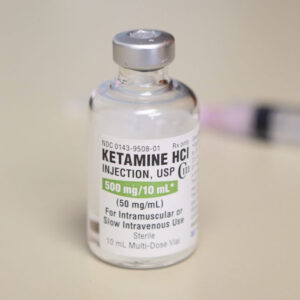Buy Ketamine Europe
Buy Ketamine Europe
A World of Possibilities: Buy Ketamine Europe
Welcome to the intriguing world of buying ketamine in Europe, where an array of opportunities await those seeking this unique substance. Ketamine, known chemically as 2-(2-Chlorophenyl)-2-(methylamino)-cyclohexanone, is a dissociative anesthetic that has gained significant attention for its diverse applications. From medical settings to recreational use, the manifold uses of ketamine have sparked both fascination and controversy.
Before diving into the intricacies of this topic, it is crucial to comprehend what exactly ketamine is and how it is employed. Initially synthesized in 1962 by Calvin Stevens, a renowned American scientist, ketamine was primarily developed as a safer alternative to phencyclidine (PCP).
This versatile compound acts as an antagonist at N-methyl-D-aspartate (NMDA) receptors in the brain, inducing dissociation between sensory perception and consciousness. The utilitarian value of ketamine extends beyond anesthesia.
Its sedative properties make it a viable option for surgical procedures and pain management. However, what sets ketamine apart from other anesthetics is its potential as a therapeutic tool.
Recent studies have highlighted its efficacy in treating depression and chronic pain syndromes that were previously considered resistant to conventional treatments. Such groundbreaking discoveries have piqued the interest of researchers and medical professionals worldwide.
The European Perspective: Navigating Ketamine Acquisition
While understanding the uses and effects of ketamine is essential, comprehending the specific process involved in acquiring this substance within European territories holds paramount importance. Europe encompasses a wide range of countries with differing regulations surrounding the purchase and distribution of ketamine.
In order to navigate this intricate landscape successfully, individuals interested in obtaining ketamine must be well-informed about the legal framework that governs its acquisition. Each country within Europe possesses its own unique set of rules and regulations, which can vary significantly.
From strict controls to more permissive approaches, the European continent presents a diverse patchwork of legal stances towards ketamine. This article aims to shed light on the nuances of buying ketamine within Europe.
It will delve into the legal status of ketamine across various countries, explore online and offline purchasing avenues, and highlight potential risks and precautions associated with acquiring this substance. By delving into these aspects, readers will gain a comprehensive understanding of the intricacies involved in the process of buying ketamine in Europe.
Understanding Ketamine
Definition and history of ketamine as a dissociative anesthetic
Ketamine is a pharmaceutical drug that has gained recognition for its profound dissociative effects. First synthesized in 1962 by Calvin L. Stevens, an American chemist, ketamine was originally developed as a safer alternative to phencyclidine (PCP), a highly potent anesthetic with significant side effects. Ketamine belongs to the class of drugs known as arylcyclohexylamines and acts primarily as an NMDA receptor antagonist.
This unique mechanism of action distinguishes ketamine from other commonly used anesthetics. The therapeutic potential of ketamine was quickly recognized following its introduction into medical practice.
It was initially utilized solely for anesthesia and sedation purposes due to its ability to induce a trance-like state while maintaining cardiovascular stability. However, over time, researchers began to uncover the multifaceted applications of this drug.
Medical uses and therapeutic applications of ketamine, including its role in treating depression and chronic pain
Beyond its traditional role as an anesthetic agent, ketamine has emerged as a promising treatment option for several psychiatric conditions and chronic pain disorders. One notable area where ketamine has shown remarkable efficacy is in the management of treatment-resistant depression (TRD).
Studies have demonstrated that low-dose intravenous infusions or nasal spray formulations of ketamine can rapidly alleviate depressive symptoms in individuals who have not responded well to conventional antidepressant medications. Moreover, ketamine’s effect on chronic pain conditions such as neuropathic pain or complex regional pain syndrome (CRPS) has been well-documented.
By modulating the glutamatergic system in the central nervous system, it helps dampen hyperexcitability and improve pain thresholds. The analgesic properties of ketamine make it particularly valuable for patients suffering from intractable pain who have exhausted other treatment options.
Showing all 2 results
-
Buy Ketamine UK (Liquid)
Buy Ketamine Europe -
Ketamin Kaufen (Ketamine Kopen)
Buy Ketamine Europe

